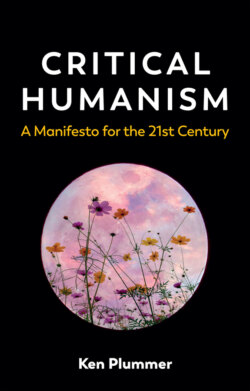Читать книгу Critical Humanism - Ken Plummer - Страница 11
Box 0.1: Defining humanity
ОглавлениеThe languages of both humanism and humanity are contested and muddled. That said, in this book I use certain key words to mean certain things while certainly acknowledging all these words need debating.7
The term human species (homo sapiens) is fairly straightforward. We are a biological species (hominin) and part of the evolutionary classification of domains of life. We make up about 0.01 per cent of life on earth,8 taking a small place in the grand encyclopaedia of living things. Humankind is a collective word to depict our bio-geo-historical existence.
The idea of human beings (or even persons)9 builds on the above but suggests the ways in which we differ from other animals. These terms bring a range of descriptive formal properties open for discussion. This includes (i) we are embodied with feelings and elaborate brains and cognitions; (ii) we are animals aware of our vulnerability; (iii) we develop language, consciousness, symbolic communications, we tell stories and create selves; (iv) we live in worlds of values, becoming moral animals; (v) we are agentic animals who act in the world; (vi) we have emergent potentials, capacities, capabilities; and (vii) we are creative animals. We could add more. These are only formal features of being human. The controversies start when we talk about their substantive content. What kinds of bodies, selves, vulnerabilities, values, capabilities? Some ideas – rights, dignity, equalities – are perpetually controversial because they straddle the descriptive formal and the evaluative substantive.
Humanities refers to the study of all things human – especially its arts, literature, languages, music, poetics.
Humanity is a more recent and more muddled idea. It can be taken (i) as a collective descriptive word for the entirety of human life. But it can also suggest (ii) a collective evaluative word for human life, often implying those who show human sympathy with others. Often these two get muddled. (An emerging idea, (iii), is that we are actually all ‘little gods’, albeit little gods who shit! But we can leave that controversy to one side for the moment. See pp. 84–5.)
Finally, humanism itself has many meanings. Here I use it to signify all ideas that try to understand what it means to be human and to find ways of enhancing our being in the world.
